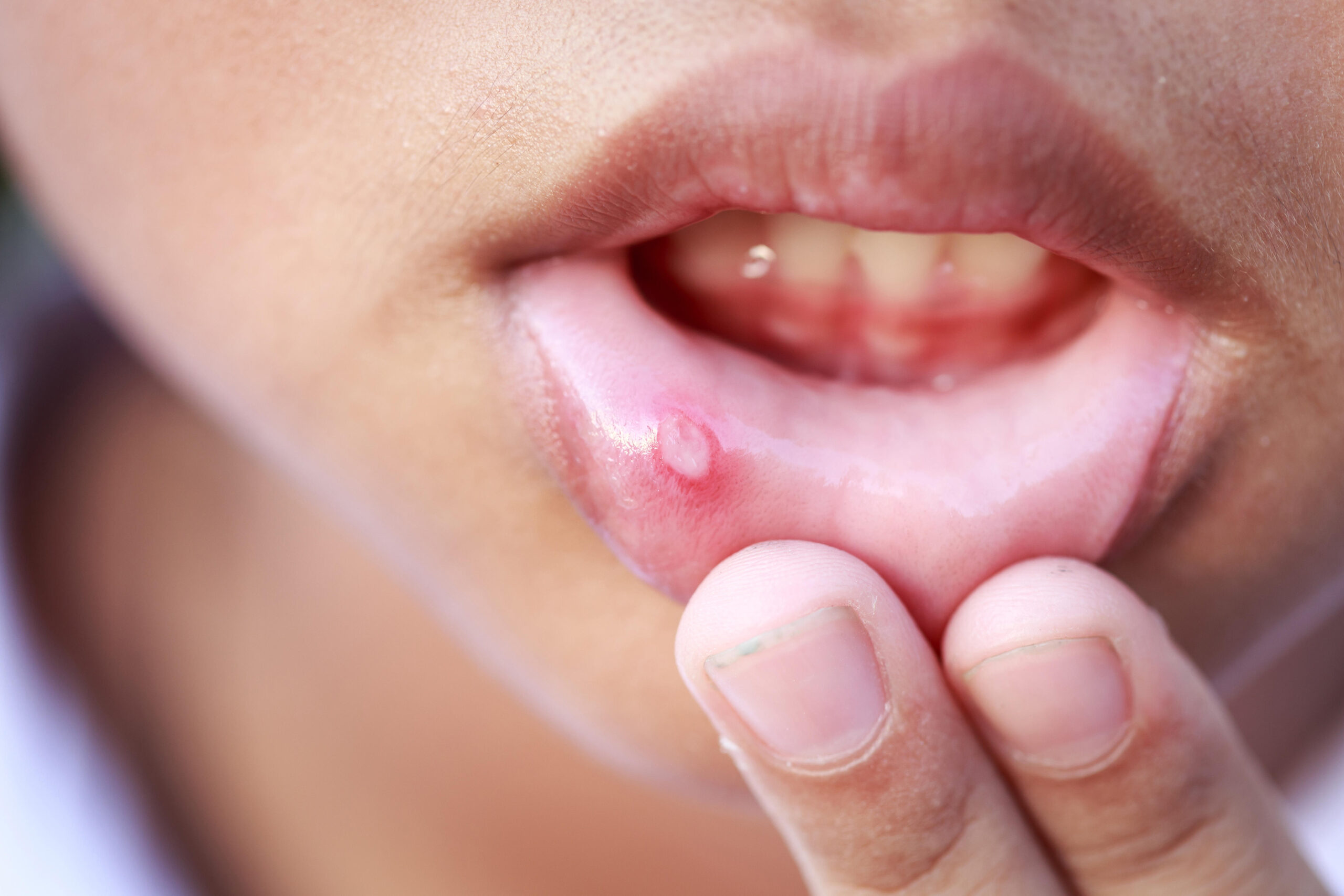Mouth ulcers are painful areas in the mouth and gums. They are also known as canker sores. While most of them are harmless, mouth ulcers can be extremely uncomfortable and make it difficult for some people to eat, drink, and brush their teeth. Mouth ulcers range in size, and the exact symptoms of the mouth ulcer will depend on what type of ulcer a person has. It is important to note that a doctor or a dentist should examine any new ulcer and any ulcer lasting longer than 3 weeks. For most people, mouth ulcers will clear up within 2 weeks.
Signs and symptoms:
The symptoms of a mouth ulcer depend on the cause, but may include:
- One or more painful sores on part of the skin lining the mouth.
- Swollen skin around the sores.
- Problems with chewing or tooth brushing because of pain.
- Irritation of the sores by salty, spicy, or sour foods.
- Loss of appetite.
When to see a doctor?
Most cases of mouth ulcers generally resolve on their own without any medical intervention.
However, it is essential that you consult a dentist or an ENT specialist if:
- The mouth ulcers keep coming back.
- The condition becomes so painful that it starts to disrupt your daily life.
- The mouth ulcer does not clear even after 3 weeks.
- Your gums begin to bleed.
- You develop white patches on your tongue or anywhere inside the oral cavity.
- The pain and redness in and around the ulcer get worse.
- You constantly run a fever higher than 100.5°F (taken by mouth).
- The ulcer shows no sign of subsiding despite adequate home based care.
https://patient.info/oral-dental-care/mouth-ulcers-leaflet
https://www.nhs.uk/conditions/mouth-ulcers
https://www.ucc.ie/en/media/academic/dentalschool/patientinfoleaflets/RecurrentMouthUlcers.pdf

